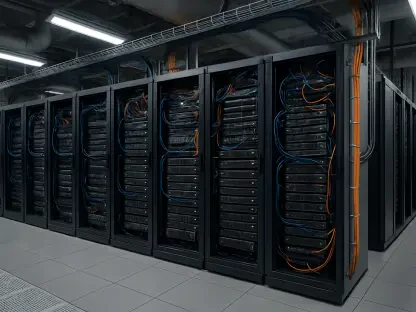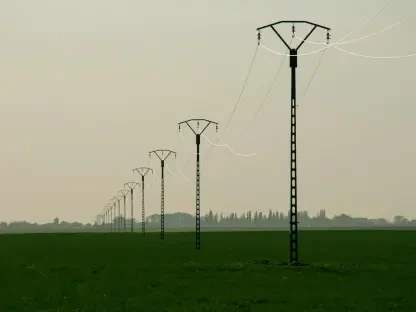In this interview, we sit down with Vladislav Zaimov, an experienced telecommunications specialist, to discuss recent developments in the antitrust investigation involving Vodafone, Vantage Towers, and 1&1. With a focus on enterprise telecommunications and risk management of vulnerable networks, Vladislav provides a comprehensive understanding of the complex situation and its broader implications for the industry.
Can you explain the background of the agreement between Vodafone’s group company Vantage Towers and 1&1?
The agreement between Vantage Towers, which is part of Vodafone Group, and 1&1 was meant to allow 1&1 access to numerous antenna sites managed by Vantage Towers. This access was crucial for 1&1 to establish itself as a new mobile network operator in Germany, providing them the infrastructure needed to compete in the market. However, the fulfillment of this agreement has faced significant delays.
What were the specific terms of the agreement regarding the provision of antenna sites?
The agreement stipulated that Vantage Towers would provide a specific number of antenna sites to 1&1. These sites were to be delivered in several stages, enabling 1&1 to gradually build its mobile network. The details included a phased timeline for the rollout of these sites, ultimately supporting 1&1’s market entry as a competitive force.
When was the agreement initially made?
The agreement was initially made in late 2021. It was seen as a strategic move to enhance competition in the mobile network space in Germany by providing 1&1 with the necessary infrastructure to build its network.
How many antenna sites were agreed to be provided and in how many stages?
The contract involved a four-digit number of antenna sites, and the rollout was planned to be carried out in several stages until the end of 2025. This phased approach was designed to support a steady development of 1&1’s network capabilities.
What were the expected deadlines for the provision of these sites?
Originally, the deadlines for the various stages were set to ensure completion by the end of 2025. The timelines were laid out to facilitate an orderly and predictable expansion of 1&1’s network infrastructure.
What were the reasons for the one-year postponement of these deadlines?
The reasons for the postponement were not entirely clear, but they involved logistical challenges and resource allocation issues. The extended deadlines were meant to provide more time to address these complications, but they have since led to significant delays beyond the revised schedule.
How did Vodafone and Vantage Towers justify these delays?
Vodafone and Vantage Towers cited various reasons for the delays, including unforeseen difficulties and the need to upgrade their own network infrastructure. They argued that these factors necessitated the postponement of site provision to 1&1.
As of now, how many of the agreed sites have been provided to 1&1?
Currently, only a small fraction of the agreed sites have been provided to 1&1. This has severely impacted 1&1’s ability to develop its network as planned.
How has the delay in providing the sites impacted 1&1’s ability to build its own mobile network?
The delays have had a substantial negative impact on 1&1’s ability to establish its mobile network. Without access to the necessary antenna sites, 1&1 has been unable to roll out its services effectively, hindering its competition with established players.
Can you elaborate on the upgrades Vodafone has made to its own network during this period?
During this period, Vodafone has significantly upgraded its network, particularly enhancing it to 5G standards. They focused on bolstering their own infrastructure, which included some of the sites initially intended for 1&1.
How have these upgrades benefited Vodafone?
The upgrades have allowed Vodafone to maintain and even strengthen its market position by offering improved services to its customers. This has given Vodafone a competitive edge and solidified its market share amidst the delays affecting 1&1.
What were the findings of the Bundeskartellamt’s preliminary legal assessment with regard to these delays?
The Bundeskartellamt’s preliminary legal assessment found that the delays constituted an anti-competitive impediment to 1&1’s market entry. They determined that the delays could have been avoided and that Vodafone’s and Vantage Towers’ actions represented abusive conduct under competition law.
How do these delays represent an anti-competitive impediment to 1&1’s market entry?
By delaying 1&1’s access to the necessary antenna sites, Vodafone and Vantage Towers effectively hindered 1&1’s ability to compete. This delay undermines 1&1’s market entry strategy, preventing them from offering competitive alternatives to consumers and thus maintaining the status quo favoring established players like Vodafone.
According to the Bundeskartellamt, in what ways could the delays have been avoided?
The Bundeskartellamt suggested that Vodafone and Vantage Towers could have prioritized their resources differently. For instance, they could have postponed 5G upgrades on the sites intended for 1&1 and concentrated more effort on meeting their contractual obligations.
What specific actions does the Bundeskartellamt suggest Vantage Towers and Vodafone could have taken to fulfill their contractual obligations?
The Bundeskartellamt indicated that Vodafone and Vantage Towers could have delayed their own network upgrades or allocated more resources to ensuring the timely provision of sites to 1&1. These actions would have helped avoid the delays and adhered to the agreed timelines.
How does Vodafone’s general interest make the delay in fulfilling the contractual obligations plausible?
Vodafone has a vested interest in maintaining its dominant market position. Delaying the provision of sites to 1&1 benefits Vodafone by slowing the entry of a new competitor, thereby protecting its market share and delaying any potential revenue loss to 1&1’s competitive services.
How does the delay in provision affect 1&1’s position with regard to the award of frequencies by the Bundesnetzagentur?
The delays weaken 1&1’s position in the competitive landscape, also affecting their standing in the allocation of frequencies by the Bundesnetzagentur. A weaker network makes it less likely for 1&1 to secure favorable terms in such awards.
What were the commitments proposed by Vodafone during negotiations with the Bundeskartellamt?
Vodafone proposed certain commitments to address the competition concerns, including timelines for site provision and other measures to ensure compliance with their contractual obligations. However, these were deemed insufficient by the Bundeskartellamt.
Why did the Bundeskartellamt find these commitments unsuitable?
The Bundeskartellamt found the commitments unsuitable because they did not align fully with what had been contractually agreed upon. The proposals fell short of ensuring timely and adequate site provision to 1&1, continuing to pose competition concerns.
What measures is the Bundeskartellamt considering to address the competition concerns?
The Bundeskartellamt is considering measures that include enforcing the provision of the relevant sites within three years and other actions to mitigate the anti-competitive effects. They are focused on ensuring compliance and restoring competitive balance in the market.
What are the potential consequences for Vodafone and Vantage Towers if the Bundeskartellamt’s final decision determines their conduct to be anti-competitive?
If found to be anti-competitive, Vodafone and Vantage Towers could face significant regulatory actions, including fines and mandatory timelines for site provision. They would also be under stricter scrutiny to prevent future anti-competitive practices.
What is the current timeline for the final decision on this matter?
The final decision on this matter by the Bundeskartellamt is expected to be issued by mid-2025. This will provide a conclusive determination of the companies’ conduct and the necessary remedies.
Do you have any advice for our readers?
For readers, particularly those involved in the telecommunications industry, understanding and adhering to competition laws is crucial. It’s vital to recognize that strategic delays or resource misallocations could be viewed as anti-competitive and could attract significant penalties from regulatory bodies. Stay informed and ensure your practices promote fair competition.









